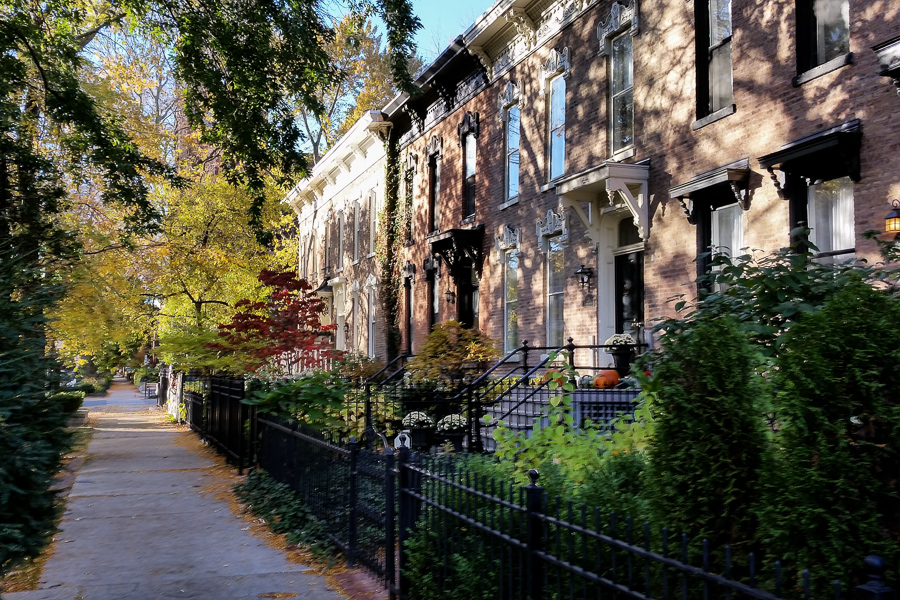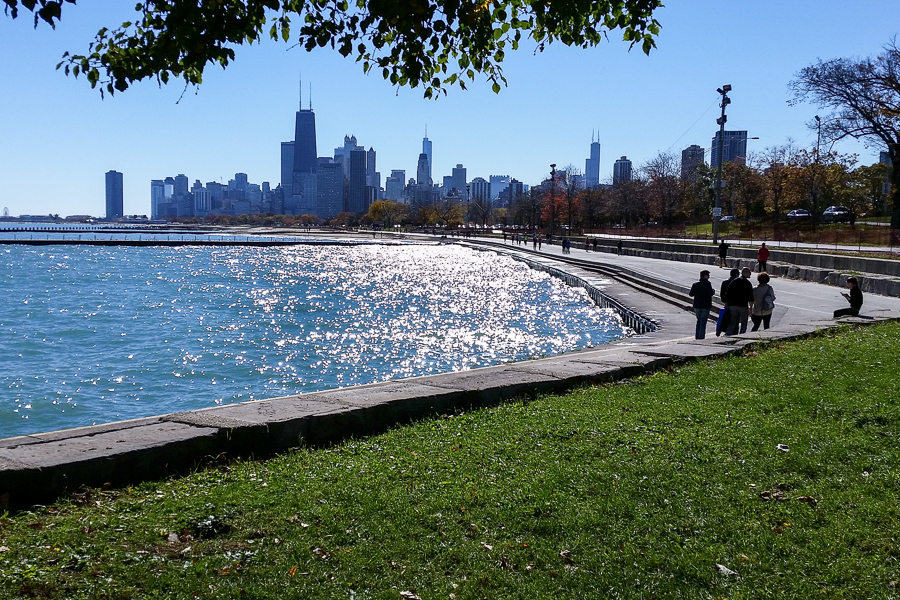Damion Searls, writing for Paris Review, finds the link between language and the soon-to-be-extinct penny:
One thing we’ll lose, when the penny eventually goes the inevitable way of the half cent and the Canadian penny (extinct as of 2012), is the last possible link between our language of money and the everyday physical world.
A quarter is a fourth of a dollar, a dime a tenth (Old French dîme, Latin decima), a cent a hundredth or one percent—all math. Anyway, a cent is not a piece of money: a U.S. penny is technically a cent or one-cent coin, but in spoken language, a cent is a value and a penny is a coin. We offer someone our two cents, not two pennies; pennies can clink in your pocket, cents can’t. (When Americans adopted the British term penny in 1793, they took over the distinction, too: in England between pennies and pence.)
As for penny, its etymology is uncertain, though the ending implies a Germanic origin—the word used to be penning, with an -ing, like shilling and farthing, instead of a -y. The root may be Pfand, which turned into the English word pawn meaning “a pledge or token”: in that case, penny basically just means money. Or it may derive from the German Pfanne, “pan,” the round metal thing that you cook in. My head says it’s pawn: the pan pun sounds like classic folk etymology that somebody simply made up. But my heart belongs to Pfanne: surely the original coin goes back to some concrete reality, an object of actual use.
That said, the American penny isn't going anywhere. It's going to keep coming back like a bad...yeah.
Except for one minor problem, this has been a good trip. I'll have photos of the super-cute hotel probably this weekend. And the meeting today went surprisingly well, notwithstanding the 10 times I had to leave the room.*
One amazing thing happened: at the end of the meeting, we stopped by reception and asked about getting a taxi. The receptionist pushed a button on a small device, which promptly spat out a receipt, which she handed us. By the time we got outside the building, there was a taxi waiting. Amazing. Why don't we have these things in the U.S.?
* The minor problem seems to have come from a salad I ate Monday for lunch, and has has made it unlikely I'll get to experience any great dining here in Oslo. I am not pleased.
The Apollo Chorus of Chicago will perform at 3:30 this afternoon at St. John Cantius Church in Chicago, right by the Chicago/Milwaukee Blue Line stop.
We'll perform two movements from Schubert's Mass in A-flat, five choruses from Händel's Messiah, and a few other pieces (including a beautiful soprano duet by Monteverdi).
The church is gorgeous. I mean, gorgeous. Even if you don't hear us perform you should at least poke around the space.
Oh, did I mention the concert is free? You should still subscribe, so you can hear us perform the entire Messiah in December and the entire Schubert in March.
The New Republic yesterday declared the British men's suit to be the island's greatest invention:
We have to thank the members of the Romantic movement for the sober colors of suits. It was their love of the Gothic that put us in grey and black but the suit stuck. It said something and it meant something to men around the world; it said and meant so much that they would discard their local dress, the costumes of millennia, their culture and their link to their ancestors, to dress up like English insurance brokers. There is not a corner of the world where the suit is not the default clobber of power, authority, knowledge, judgement, trust and, most importantly, continuity. The curtained changing rooms of Savile Row welcome the naked knees of the most despotic and murderous, immoral and venal dictators and kleptocrats, who are turned out looking benignly conservative, their sins carefully and expertly hidden, like the little hangman’s loops under their lapels.
Every man imagines that he will turn his suit like a double agent, that it can be twisted to his will with irony or comedy, that the man can undermine its origins. Every chap thinks he’s a match for his suit and, every year, clever and witty designers offer a twist, a take, a rejig; but for over 200 years, the suit has remained impervious, maintained its bland menace, kept its implacable secrets uncreased. You think you wear the suit: the suit wears you. It is woven magic, necromancy, the black art that hides in plain sight. No one knows or can say what the spell of the suit is, or how it works, but still it exudes its inoffensive writ.
Sure, but hey, I look good in a suit.
The final score from my FitBit challenge over the weekend was: friend, 33,800; me, 37,800. Yesterday I gave Parker 3 hours of walks and also walked home from dinner instead of taking public transit or a Divvy, which got me almost to 23,800 steps (and 17.7 km) for the day.
There was a cost. My feet hurt, Parker was lethargic this morning, and I ate too much. And this week it's not likely I'll get 10,000 steps in every day this week because I've got an all-day meeting Wednesday. Which is probably a good thing, according to my feet and my dog.
Following a friend's example, I got a FitBit this week. The same friend has challenged me for the weekend, getting 15,300 steps to my 14,000 yesterday, and going hiking this afternoon. Ah, but I have a dog, you see. And the weather is perfect. So far today I've walked 15,400 steps (11.6 km), almost all of it with Parker, and we're about to go out for another walk.
Here's walk #1, this morning, in Lincoln Park:

And walk #2, at lunchtime, down the Lakefront Path:

I got my 15,000-step badge on Friday, my first full day with the thing. Today I'm aiming for 20,000. My friend is too. This will be close, I'm guessing...
I'm a little busy today, preparing for three different projects even though I can only actually do 1.5 of them. So as is common on days like this, I have a list of things I don't have time to read:
I really would have liked another week in London...
It wasn't the fastest race ever, but at 2:04:11, it was pretty fast:
Eliud Kipchoge didn’t hesitate to press his advantage over Kenenisa Bekele in the news conference before Sunday’s Bank of America Chicago Marathon.
“I have more experience,” Kipchoge said.
And Kipchoge used it to drop first Bekele and then everyone else, as he won the race in 2 hours, 4 minutes, 11 seconds.
Kipchoge, who collected $155,000 for the win and a time bonus, led a Kenyan sweep of the podium. Sammy Kitwara was second in 2:04:28, with Dickson Chumba third in 2:04:32.
But for real speed, the wheelchairs can fly:
Illinois' Tatyana McFadden won the women's wheelchair race in 1:44.50. Joshua George, also of Illinois, won the men's wheelchair race in 1:32.12.
Parker and I just walked over to the course (it's a block away), and already it's like the event never happened. The logistics involved in this race are phenomenal.
Over the next 10 days I have four long flights, one round-trip to Los Angeles and one to London. Even though I'll have to work a bit on all four of them, I'm also getting ready to have some quality reading time. (In fact, there will be at least one afternoon in London spent reading and drinking beer, as usual.)
To start, I've added two challenging books to my Kindle: Cervantes' Don Quijote (in the original Spanish) and Chaucer's Canterbury Tales (in the original Middle English). I've never read either; both will push me linguistically. (And now that I'm thinking about it, I'm also adding a Spanish-English dictionary...)
Also, I've sent these articles to the device:
The L.A. trip was expected, as it's a follow-up to the trip I took last week, but it's still weirdly timed. And poor Parker will be boarded forever. Of course, when I take the recycling out to the alley, clearly I've been gone forever when I return, so that's not exactly a neutral benchmark.
Vox's Sarah Cliff reports some data from health gadget maker Jawbone about when we go to sleep, and for how long:
Jawbone's data shows that, on average, no major American city gets the National Institute of Health recommended seven hours of nightly sleep. You see that in the light green areas [on the interactive map], which tend to surround large populations.
Jawbone also put together a map of when people go to sleep. And there you see mostly people who live in large cities and college towns staying up later. That shows that people in Brooklyn, NY tend to have the latest bed time in the United States (they turn down, on average, at 12:07 a.m.) where as people living in Maui, Hawaii get to bed the earliest at 10:31 p.m.
In a similar vein, people in Massachusetts are grumbling about their time zone again, thinking that year-round daylight saving time (or year-round observance of Atlantic Standard Time) will somehow make life better:
As sunset creeps earlier—it’s down to 6:19 p.m. today in Boston—we’re already dreading what happens a month from now: Clocks turn back. The first Sunday morning, it’s fantastic. An extra hour of sleep! Later that day, though, the honeymoon ends. Why is it pitch black before dinner?
The same weekend we experience these conflicting emotions, Americans in Arizona and Hawaii will do something foreign to most of us: They won’t change their clocks.
More evening daylight could be part of a broader solution to retain the bright young people who come to New England from afar to our world-class colleges and universities. Retaining college graduates is so important to our region that the Federal Reserve Bank of Boston is studying the issue. But consider the actual experience of students who come to Boston for their education: On the shortest evening of the year, the sun sets here at 4:11. When they graduate, they might find themselves with options in New York, where the shortest day extends to 4:28, or Palo Alto, where it’s 4:50! Shifting one time zone would give us a 5:11 sunset—a small but meaningful competitive change.
Well, sure, but the sun would rise as late as 8:15 am in December, which would cause parents to complain. (For an excellent takedown of the Globe's argument, check out Michael Downing's Spring Forward.)